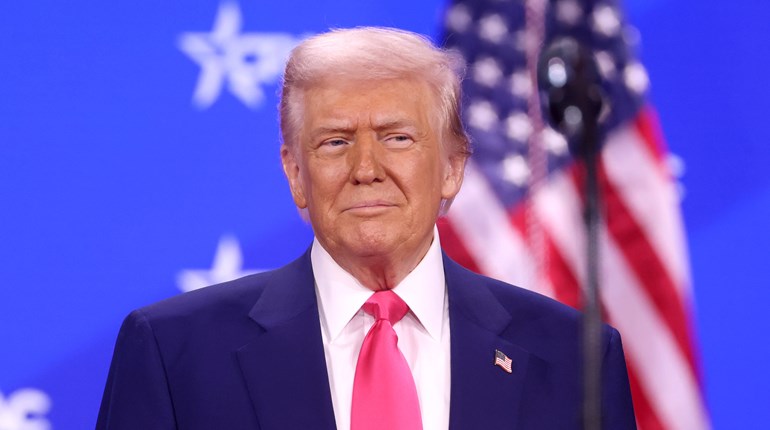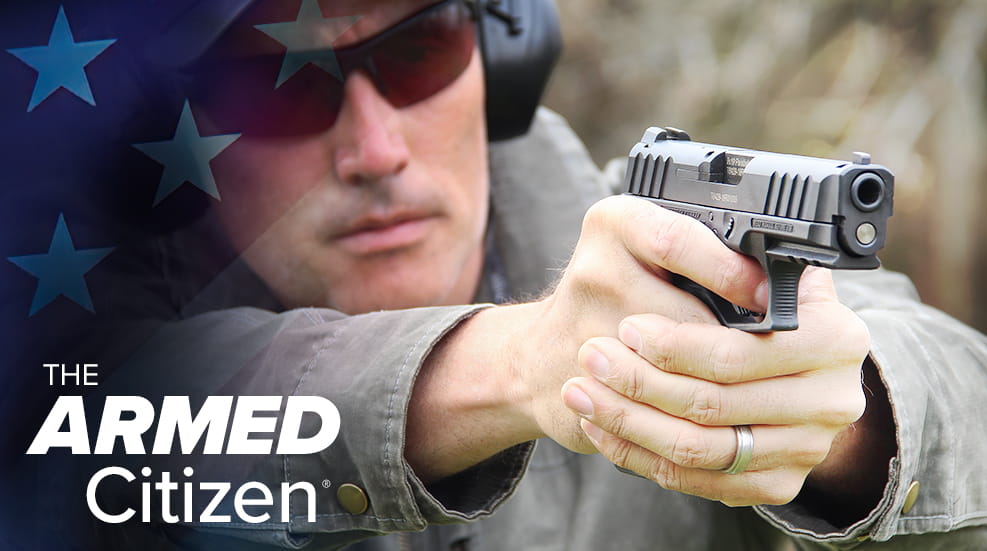
I have spent much of the last year reporting on Joe Biden’s aggressive plans for gun control. Yet one of his most consequential proposals doesn’t feature the headline-grabbing elements of a firearm ban or confiscation scheme (which, of course, Biden also supports).
The proposal I’m speaking of is repeal of the Protection of Lawful Commerce in Arms Act (PLCAA). If Biden succeeds in this goal, the industry that supplies firearms and ammunition to U.S. consumers, law enforcement and our military would be subject to death by a thousand cuts.
Biden has not been shy about his plans to abolish the PLCAA. His campaign website put it at the top of a very long list of anti-gun measures he hopes to enact. That website falsely claims, “This law protects [gun] manufacturers from being held civilly liable for their products—a protection granted to no other industry.” It further states, “Biden will prioritize repealing this protection.”
Indeed, Biden had promised his gun-control supporters in February 2020 that he would send a PLCAA repeal bill to Congress on his “first day in office.” While he did not meet that timeline, on Feb. 14, Biden called on Congress to pass several gun-control measures, including a repeal of the PLCAA.
Whether the repeal effort happens sooner or later, Second Amendment supporters must understand the gravity of what this would mean to their rights and the importance of engaging politically to oppose it. To do that requires an understanding of the PLCAA’s background, what the law actually does, and—perhaps most importantly—what it does not, despite false claims by Biden and other opponents of the act.
During the 1990s, gun-control activists inside and outside of the federal and various municipal governments launched a coordinated effort to sue the American firearms industry into oblivion … or at least into subservience to their demands. The litigation was inspired, in part, by lawsuits against the tobacco industry.
The idea was to structure the suits so gun companies would be facing multiple cases in multiple jurisdictions simultaneously. And, they didn’t even need to win. They only needed to keep the suits moving long enough to bleed the industry of the financial resources necessary to fight the meritless litigation.
Biden has not been shy about his plans to abolish the PLCAA. His campaign website put it at the top of a very long list of anti-gun measures he hopes to enact.
The plaintiffs advanced a variety of theories in their complaints, but the essence of their claims was that firearm and ammunition manufacturers, distributers and dealers should be held civilly liable for crimes third parties committed with their products.
Legally, these cases faced an uphill battle, as they would require courts to ignore a basic and longstanding principle of tort law. New York’s highest court explained this principle in a unanimous 2001 opinion denying various claims against firearms manufacturer Beretta.
“A defendant generally has no duty to control the conduct of third persons so as to prevent them from harming others,” the court wrote. Courts were reluctant to depart from this principle, it explained, because of “practical concerns both about potentially limitless liability and about the unfairness of imposing liability for the acts of another.” The rule had exceptions, however, for situations in which a special relationship existed between the defendant and the third party (such as employer/employee) or between the defendant and the injured party (such as an airline and its passengers).
You don’t have to be a lawyer to appreciate the common sense of this rule. To cite another example, automobile makers and dealers are not legally responsible for the injuries of drunk drivers, nor, for that matter, are the brewers or distillers of the alcohol itself. To hold otherwise, as the court pointed out, would mean unlimited exposure to liability for the actions of random people that would make it impossible for anyone to engage in the business of manufacturing or distributing vehicles or alcohol.
It would also be unjust, because the person directly responsible for the harm to the victim is the intoxicated driver who chose to get behind the wheel, not a business engaged in lawful commerce.
Similarly, if a company manufactures firearms for law-abiding people to use for lawful purposes, and a criminal misuses one of the company’s guns to hurt someone, the criminal is the responsible party.
The cases that went as far as a court opinion on the merits were in fact almost uniformly unsuccessful.
For the plaintiffs, however, winning wasn’t necessarily the point. Sure, they hoped a sympathetic activist judge might stretch the law to help their case.
But the mere cost of fending off multiple cases in multiple courts across the nation could force a company into insolvency. Or the company might bow to the extortion and agree to a settlement in which it adopted “best practices” that just happened to mirror the terms of unsuccessful gun- control legislation.
The existential threat these lawsuits posed to the gun industry—which not only supplies constitutionally protected products to the public but the arms on which the nation’s security and law enforcement operations depend—was not lost on the lawmakers of the day. Thirty-four states enacted legislation to block these suits in their own courts.
Finally, in 2005, Congress followed their example with the bipartisan Protection of Lawful Commerce in Arms Act, which creates a nationwide floor of protection from frivolous lawsuits against businesses in the firearms and ammunition sectors.
Specifically, the law prohibits, in state or federal court, a civil action or administrative proceeding by any person against a manufacturer or seller of a firearm, ammunition or “component part” thereof, or a trade association, for harms resulting from the criminal/unlawful misuse of their products by the person or a third party.
The law does not, as Joe Biden claims, grant theses industries extraordinary protection unavailable to other businesses. Rather, it merely ensures firearm and ammunition companies are not subjected to extraordinary liability that wouldn’t apply anywhere else.
Biden’s insistence that the law prevents gun makers from being held civilly liable for their products is also false. If a firearm or ammunition cartridge malfunctions and causes injury, the maker can still be held liable for defects in its design or manufacture. Liability is also available for breaches of contract or warranty.
The PLCAA’s focus is on immunity for liability arising from third-party wrongs, not for wrongs actually committed by the manufacturers, sellers or dealers themselves.
Thus, it still allows for common and legitimate forms of recovery to injured plaintiffs, including for injuries caused by the manufacturers’ or sellers’ own violations of gun-control laws or laws governing the sale or marketing of their products or for negligent entrustment by sellers. The latter involves situations in which the seller knew or should have known that it was transferring a firearm to a dangerous or unstable person or someone who intended to cause unlawful harm with it.
As I write this, in fact, there are several cases pending that claim to fall under one or more of these exceptions. To be clear, the NRA believes that many of these suits trying to exploit the PLCAA’s exceptions are just as legally meritless as the original cases that inspired the PLCAA itself. But they put a lie to the assertion that gun companies can act with impunity for their own alleged misdeeds.
What Joe Biden and other opponents of the PLCAA really hope to do is shift regulation of firearms from politically accountable lawmakers to unscrupulous trial lawyers and activist judges who need not worry about public opinion.
Once that happens, the scope of the industry’s liability is limited only by the imagination of its sworn enemies. Guns could be deemed “too dangerous” for sale to the public for being too accurate, too inaccurate, too big, too small, for holding too many rounds or for having common features (like pistol grips or detachable magazines) that are mischaracterized as making them especially “lethal.”
Gun makers and dealers facing ruin trying to defend their rights in court could be forced to agree to curb their lawful activities, for example by refusing to sell certain types of lawful products or by restricting the otherwise eligible customers to whom they make them available.
It is no exaggeration to say that while the Second Amendment protects your right to protect yourself, the PLCAA helps protect the Second Amendment. And it’s no coincidence that the same activists pushing for its repeal are also pushing for the end of private firearm sales and transfers, as this would be the easiest way to get guns if retail shops closed or refused to transact with the general public. If both were to become law, there would be no lawful way to transfer a firearm in America!
And, without meaningful access to modern guns, the Second Amendment is nullified.
It’s that simple.
And repeal of the PLCAA is that serious.


































